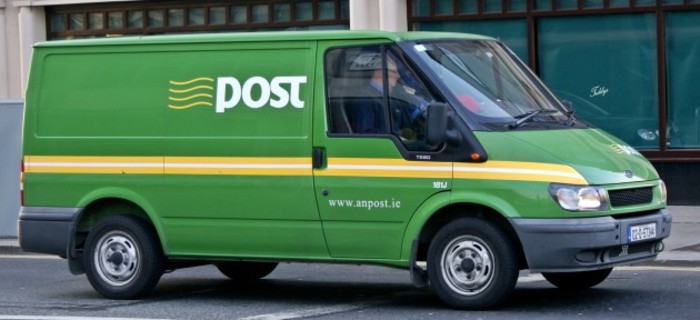An Post should get access to people's data to crack down on TV licence evasion
The Audiovisual Federation says the share of people not paying the charge is ‘unacceptable’.
THE GOVERNMENT SHOULD give An Post more information about the public to try and crack down on people who are not paying the television licence fee.
That is according to the Audiovisual Federation, the group representing audiovisual companies including broadcasters, animation studios and independent producers.
In a pre-budget submission, sent to the Department of Finance, the organisation said that the current level of licence fee evasion is “unacceptable”.
An Post is responsible for the collection of the licence fee, the bulk of which goes towards funding state broadcaster RTÉ, however the figures suggest about one in sixth households don’t pay the charge.
Although about €214 million was collected through the levy in 2015, Communications Minister Denis Naughten recently released estimates that as much as €40 million in fees that should be paid are going uncollected.
He also said that evasion in Ireland is likely among the highest in any country in Europe, adding that it was roughly three times the level of that for similar charges in Germany or the UK.
Improving collection
In its submission, the Audiovisual Federation said that there needs to be a “planned initiative to improve collection”.
It added: “(We) recommend that urgent consideration be given to the use of other public sector databases.”
Speaking to Fora, the group’s director Torlach Denihan said that An Post should be given more information to help it pursue evaders.
“Irish people are no more dishonest than any other race, but the sheer scale of licence fee evasion is substantially in excess of neighbouring countries,” he said.
 An Post is responsible for collecting the TV licence fee
An Post is responsible for collecting the TV licence fee
“The state knows who lives in the country and whatever properties there are can be found by arms of the state; the answers are at the disposal of the state.
“It is a matter of getting that information joined up. There should be a review of data sources in the public sector. I would be confident that there would be better information there than what is at the disposal of the collection agent.”
Relevant information
Denihan said that there should be an assessment carried out to see what is the most relevant information available, rather than giving An Post unfettered access to state databases.
“You could see what information is available and how it could be pooled,” he said.
“I’m not saying that every database in the public service should be given to An Post, but there should be a review to see what the most suitable source of information is to provide to An Post.”
Denihan said that the extra money raised through better collection methods, “would make a big difference to public service broadcasting and its ability to commission work from the audiovisual sector”.
The group’s submission also called for funding for the Irish Film Board to be restored to 2008 levels, when the organisation received €20 million from the state, and the extension of the Section 481 tax break which provides an incentive for foreign productions to locate in Ireland.






